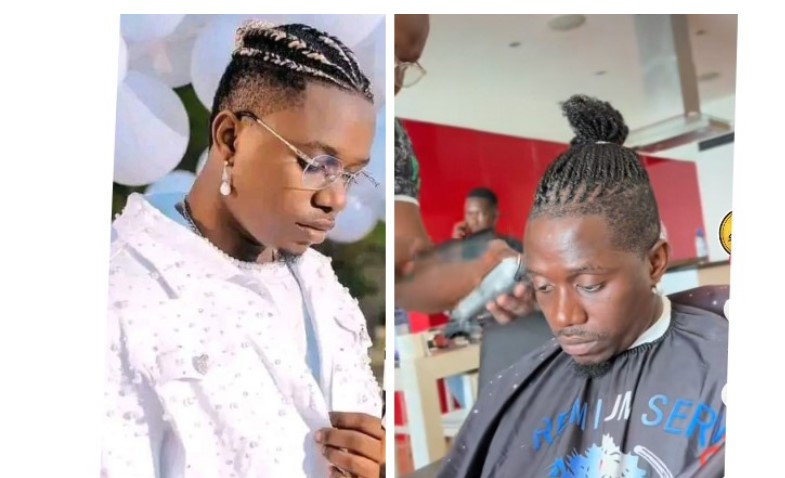Renowned Tanzanian singer Rayvanny recently visited Kenya and delivered an electrifying performance in Mombasa during an event sponsored by Royal Media. While his stage presence left fans in awe, it was his unfiltered photos that sparked widespread reactions among Kenyans.
During his stay, Rayvanny visited a local barbershop to freshen up for the highly anticipated event. The barber, eager to showcase his skills and attract more customers, recorded a video of himself trimming the celebrity’s hair. The footage, free from any filters, was later shared online. This decision, however, unintentionally opened the floodgates for trolling in the comment section. Many viewers were surprised by Rayvanny’s unfiltered appearance, which contrasted starkly with the polished photos and videos he typically shares on his social media platforms.
This incident highlights a broader trend—the pervasive use of filters on social media. Approximately 98% of online content is enhanced to present an idealized version of reality. While filters are a common feature in photography and help enhance appearances, they can also be misleading. Nevertheless, using filters is neither illegal nor unethical, and everyone, including celebrities, is free to use them as they wish.
Rayvanny has done nothing wrong by embracing filters, as they are a personal choice. However, public figures often face heightened scrutiny because fans tend to idolize them and aspire to their lifestyles. Such incidents serve as a reminder of the pressures celebrities face and the unrealistic expectations placed on them in the age of social media.



